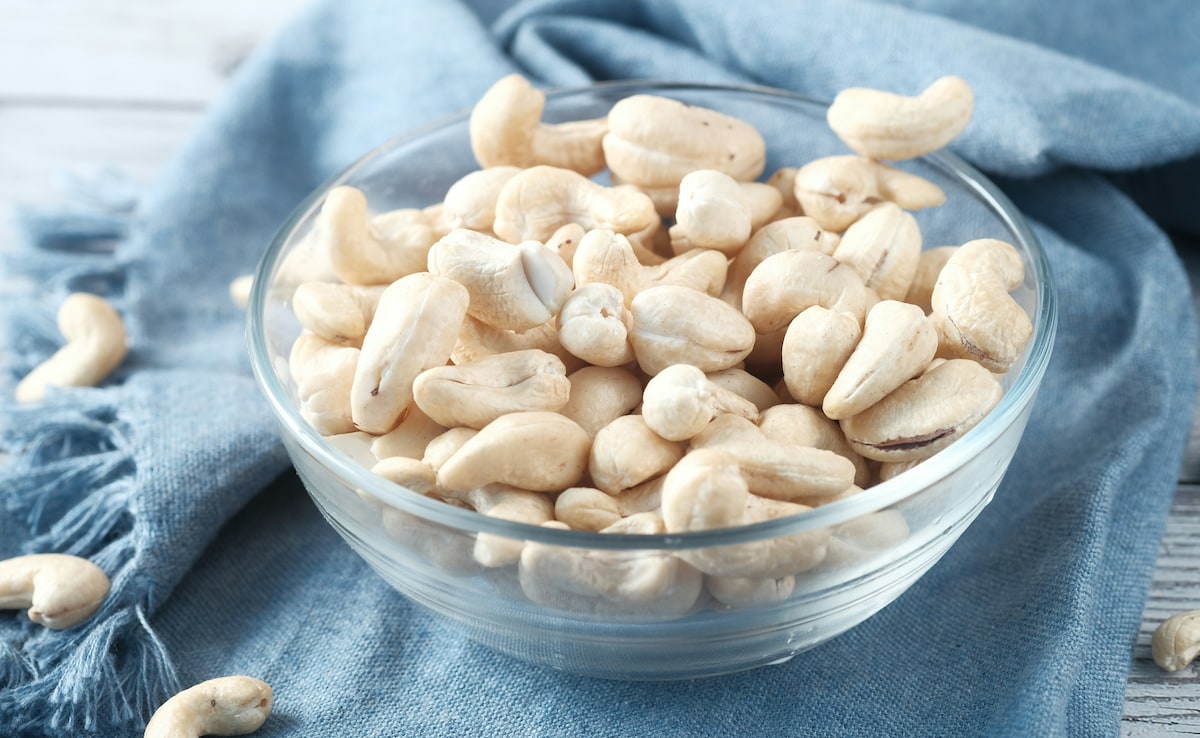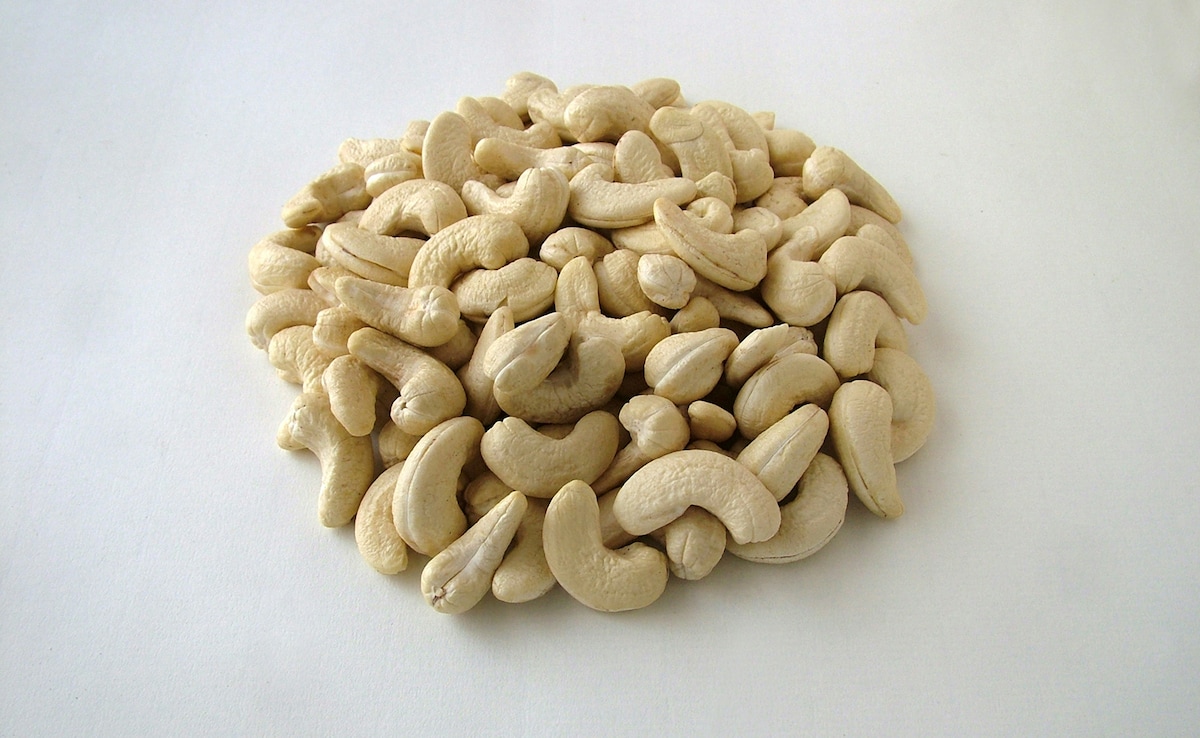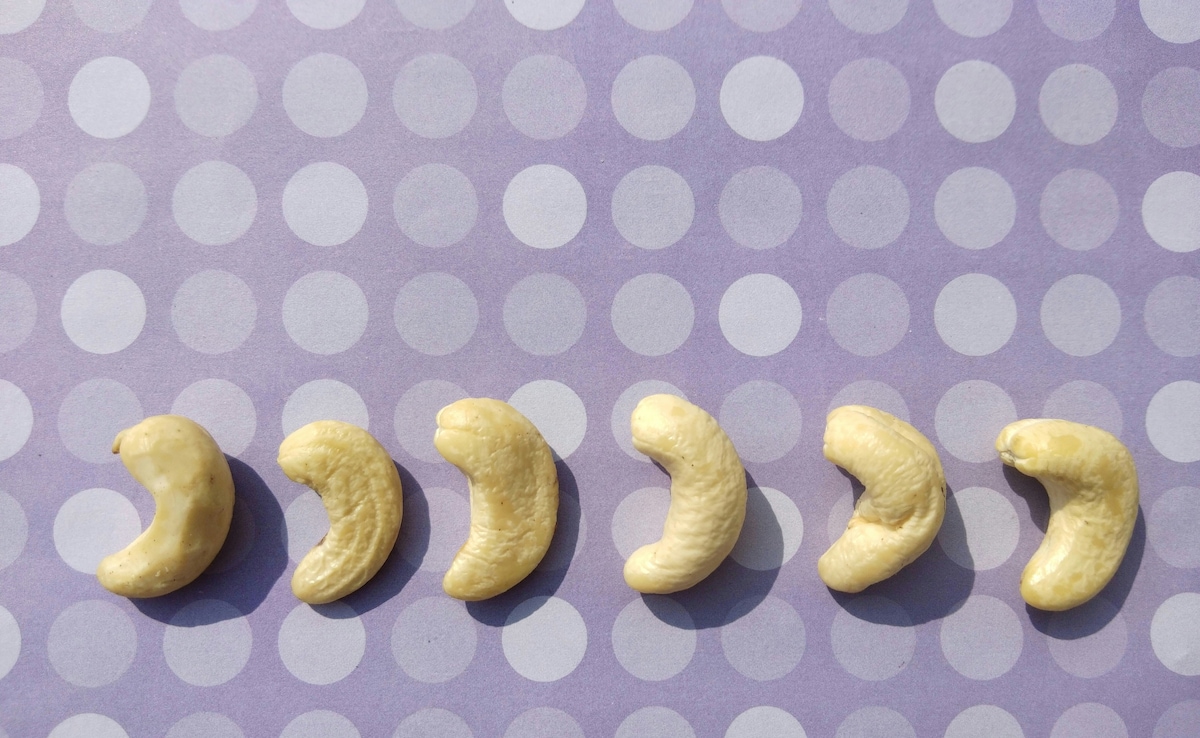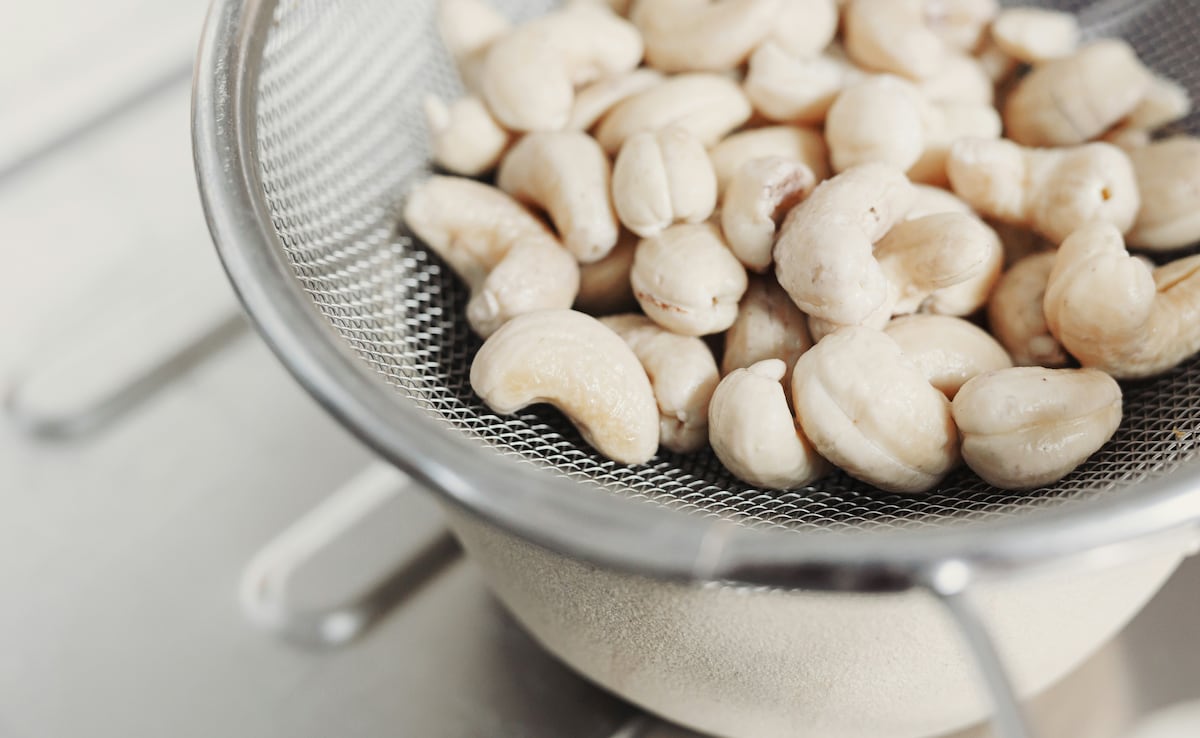
Cashews offer multiple potential benefits when soaked properly. Their crunchy texture and buttery, smooth taste make them a perfect fit for both sweet and savoury dishes. You can enjoy them raw, roasted, or as nut butter. However, the best way to eat them is soaked and whole, without added salt or sugar. Remember to consume them in moderation, as they are high in calories, according to Healthline.
Also Read: What Happens When You Eat Pomegranate Every Day For A Month
Cashew Nutrition:

Just 1 ounce (28 grams) of raw cashews offers around:
- 157 calories
- 5.16 g of protein
- 12.4 g of fat
- 8.56 g of carbohydrates
- 0.9 g of fibre.
They are also rich in copper (0.6 mg), magnesium (82.8 mg), manganese (0.4 mg), zinc (1.6 mg), phosphorus (168 mg), iron (1.8 mg), selenium (5.6 µg), thiamin (0.1 mg), vitamin K (9.6 µg), and vitamin B6 (0.1 mg).
Here's What Happens When You Eat Soaked Cashews:

Photo: Unsplash
Now, let us check out the key benefits of the soaked buttery nut when consumed daily for a month:
1. May Reduce Cholesterol
According to a 2021 report by the Journal of Science Technology and Research on the Medicinal Uses of Cashew, people who eat a small serving of cashews every day witness a slight reduction in LDL "bad" cholesterol despite containing saturated fat.
2. May Prevents Heart Disease
The fats in cashews are derived from stearic acid, which has little to no effect on blood cholesterol, according to a 2017 report in the Journal of Food Research. Additionally, the high magnesium content helps reduce the risk of ischemic heart disease by aiding in proper blood circulation to the heart. Magnesium also prevents the rupture of blood vessels, which could otherwise cause blood to spill into the brain, leading to a stroke.
3. May Prevent And Manage Diabetes
Being low in carbohydrates, cashews help in maintaining blood sugar levels. They also contain high monounsaturated fats, which are beneficial for lowering blood glucose levels and increasing insulin production – making them extremely helpful for people with type 2 diabetes, as per the 2021 report by the Journal of Science Technology and Research.

Photo: Unsplash
4. Reduces Inflammation
According to a report by the National Library of Medicine, cashews, being a rich source of antioxidants, neutralise damage-causing molecules known as free radicals. This, in turn, helps in reducing inflammation.
5. Helps In Losing Weight
Nut-rich diets play a significant role in weight loss compared to nut-free diets. According to Healthline, the fat in cashews remains trapped within their fibrous walls and is not fully absorbed during digestion.
Tips To Store Cashews For Longer Shelf Life

Photo: Unsplash
Follow these key steps to ensure the longevity and freshness of your cashews:
- Keep them in an airtight container.
- Store in a zip-lock bag.
- Place them in a cool and dry area.
Easy Ways To Add Soaked Cashews To Your Diet
Cashews can be easily added to a variety of dishes, ranging from soups and salads to stews. Here are some easy ideas:
- Add a handful of cashews to smoothies to make them richer, healthier, and more filling.
- Spread cashew butter on toast for a creamy snack.
- Stir cashew butter into yoghurt or oatmeal.
- Add whole or chopped cashews to salads or stir-fries for a delightful crunch.
- Blend cashews into desserts for a smooth, nutty flavour — perfect for an on-the-go snack.

Photo: Unsplash
Also Read: What Happens To Your Body When You Eat Oats Every Day For A Month
Besides cashews, indulging in other nuts such as almonds, pistachios, pecans, hazelnuts, and peanuts is also quite beneficial for overall health.
Disclaimer: This content including advice provides generic information only. It is in no way a substitute for qualified medical opinion. Always consult a specialist or your doctor for more information. NDTV does not claim responsibility for this information.
Track Latest News Live on NDTV.com and get news updates from India and around the world

